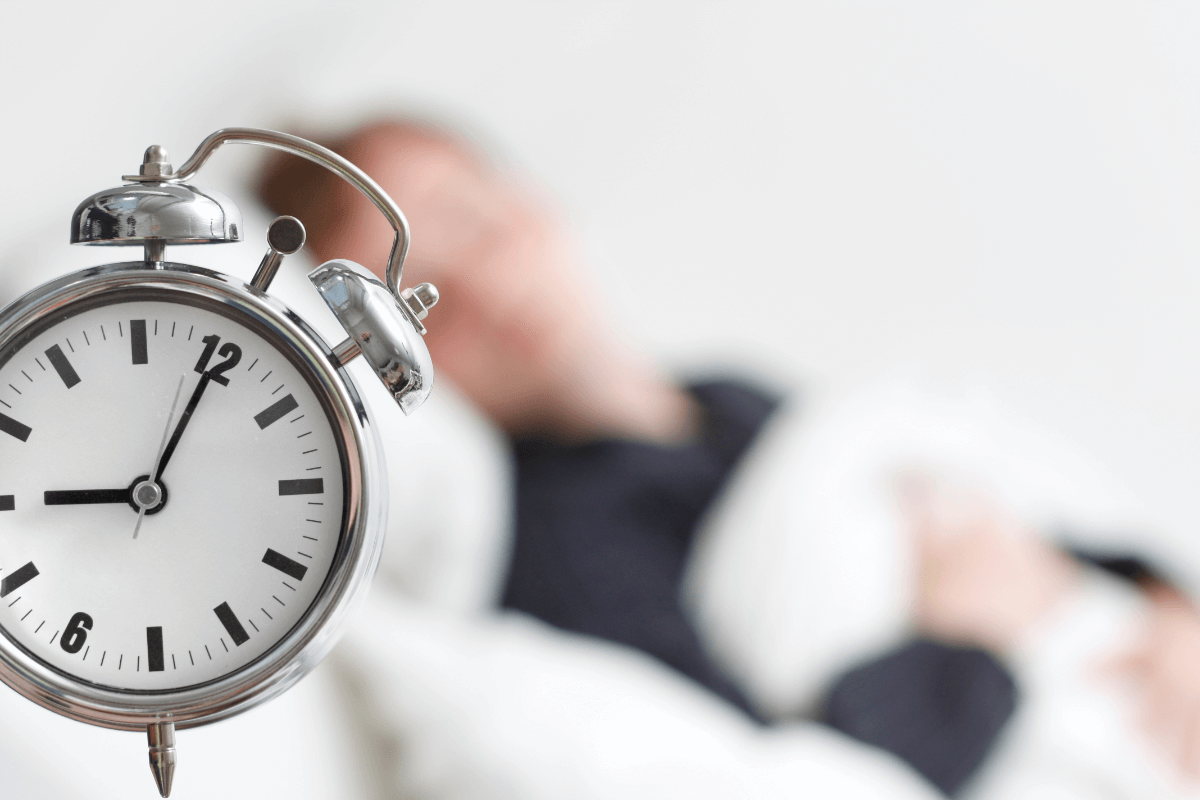Substance abuse takes a significant toll on your body and mind. In addition to throwing off your appetite and leading you to experience nutritional deficiencies, it also impacts your sleep patterns. The importance of sleep in addiction recovery is often overlooked, but it can make a noticeable difference in the outcome of treatment.
It’s common for people beginning their recovery journeys to experience sleep problems. Finding ways of improving the rest you get can help your body and mind begin to heal more rapidly. But how can you help yourself? Learn more about this issue and the strategies you can employ to combat it.
Why You Can Experience Poor Sleep During Recovery and Why That Matters
When you develop a substance use disorder, most of your body’s normal functions stop working as they’re naturally meant to. Some substances can affect how you go through your sleep stages, not giving you enough time for non-rapid-eye-movement sleep.[1] That’s your deepest sleep. Many substances also impact REM sleep.
These disruptions in your sleeping patterns arise from an imbalance of chemicals in the brain. During the recovery process, your sleep issues can continue to worsen since your body will be struggling to adjust to functioning without the addictive substance.
The consequences of sleep deprivation can be a concern during both an active addiction and the recovery period. Often, people struggling with issues like insomnia might turn back to using their substance of choice to be free of the stress that sleep deprivation causes. It’s a particular worry for people recovering from alcohol addiction.[2]
Sleep disorders can lead to mental health concerns like depression and anxiety in people in recovery. These also increase the chance of relapsing.
Benefits of Quality Sleep During Recovery
Even if you’re spending a lot of time sleeping as you recover from substance abuse, you may not be getting the kind of quality sleep that your body needs. Sleep helps to heal the body and mind, beginning with cognitive function.
Sleep deprivation affects several brain areas involved in cognitive functioning, including the temporal lobe. The temporal lobe processes language, which means sleep issues can lead to slurred speech. Other affected areas of the brain can cause memory issues and impaired decision-making skills.[3]
People who get enough quality sleep tend to have better concentration and problem-solving abilities.[4] This means being able to make better decisions and not acting impulsively. Getting enough sleep also helps to reduce anxiety and stress, common triggers for people with substance use disorders.
When you don’t get enough sleep, your body produces more cortisol, the stress hormone, and could lead to a relapse. Quality sleep helps to reduce this hormone. Sleep can also assist with emotional regulation, which can be a severe issue for people dealing with addiction. It helps minimize poor decision-making.
Strategies to Help You Get Better Sleep During Addiction Recovery
Finding ways to improve your sleep is crucial to obtaining long-term sobriety. Here are some of the top tips to make this process easier.
Establish a Bedtime Routine
You need to replace bad sleep habits with positive ones and ensure that your sleep schedule is back on track. That can mean:
- Waking up and going to bed at the same time each day
- Creating a peaceful sleep environment
- Reading or doing something calm before bedtime
You should also avoid using electronic devices. They emit light that suppresses melatonin, making it more difficult to turn off your brain as you get ready to sleep.[5] Good sleep hygiene can train your body to return to its natural sleeping routine.
Re-Establish Your Circadian Rhythms
Addiction and the recovery process can all impact your body’s natural sleep cycle. You can counteract this by spending time outside getting a bit of sunlight each day. Make sure to do this earlier in the day, and avoid staring directly at the sun.
Avoid Exercising Close to Bedtime
Exercise is important during recovery, but engaging in it too close to bedtime can give you a surge of energy you don’t want at that moment. With that in mind, try to work out earlier in the day.
Destress
It can also help to perform some breathing and relaxation exercises right before bed. These will assist you in signaling to your brain that it’s time to unwind and rest.
Sleep in Addiction Recovery: Helping People Heal
If you’re getting ready to enter treatment for any kind of substance use disorder, sleep quality can make a difference. At Ocean Hills Recovery, we offer a number of treatment programs to help you through the process. Contact us to speak with one of our experts about our treatment options.
Sources:
[1] https://www.ncbi.nlm.nih.gov/pmc/articles/PMC7996967/
[2] https://www.ncbi.nlm.nih.gov/pmc/articles/PMC2936493/
[3] https://www.ncbi.nlm.nih.gov/pmc/articles/PMC10155483/
[4] https://www.ncbi.nlm.nih.gov/pmc/articles/PMC3980112/
[5] https://www.aaas.org/taxonomy/term/9/study-light-backlit-electronics-suppresses-melatonin-release













